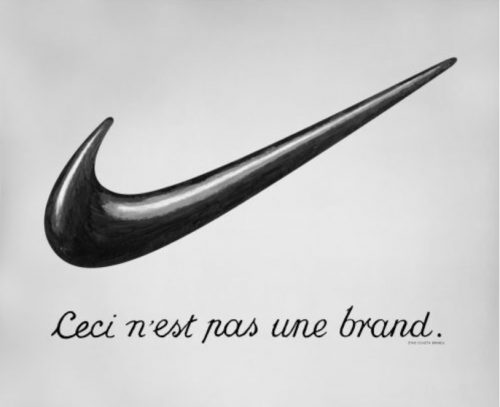The Ultimate Truths and Lies About Your Brand


Amar Pandit
A respected entrepreneur with 25+ years of Experience, Amar Pandit is the Founder of several companies that are making a Happy difference in the lives of people. He is currently the Founder of Happyness Factory, a world-class online investment & goal-based financial planning platform through which he aims to help every Indian family save and invest wisely. He is very passionate about spreading financial literacy and is the author of 4 bestselling books (+ 2 more to release in 2020), 8 Sketch Books, Board Game and 700 + columns.
July 4, 2023 | 5 Minute Read
While I have done a couple of posts on branding, I couldn’t stop myself from writing another one. Because while a lot of people talk about it, very few people actually understand it. Even fewer understand how to build it. Needless to say, figuring this out will make your firm super appealing to everyone including clients, current and prospective team members, potential buyers or even successors while helping you build solid enterprise value in it. Therefore, I am thinking of a whole new series on this topic to help you understand the elements of building a world class brand in our industry. But first let’s define what a brand really is. Wait…Before I tell you what a brand is (in the context of our industry), let’s understand what a brand is not.

Is this a brand?
How about this one?

How about this third one?

Branding Expert and Author of the book “The Brand Gap”, Marty Neumeier wrote, First of all a brand is not a logo. IBM uses a monogram, for example, while Nike uses a symbol. A logo or any other kind of trademark, is not the brand itself.
Second, a brand is not a corporate identity system. An identity system is a 20th century construct for controlling the use of trademarks on company publications, advertisements, stationery, signage and so on. Fifty years ago, lithography was the communication technology of the day; identity manuals were designed to dictate the size, colours, spacing and architecture of the printed page. Today there’s still a need for identity manuals and the visual consistency they bring. But this too does not create a brand.
Finally, a brand is not a product.
In the context of our industry then, your logo is not your brand. Your company name is not your brand. Your ARN number is not your brand.
If this is true, which it is, then what is your brand?
Marty adds further, “A brand is a person’s (your customer’s) gut feeling about a product, service or company. It’s a GUT FEELING because we are all emotional, intuitive beings, despite our best efforts to be rational. It’s a PERSON’s gut feeling, because in the end the brand is defined by individuals, not by companies, markets, or the so-called general public.
Each person creates his or her own version of it. When ENOUGH individuals arrive at the same gut feeling, a company can be said to have a brand. In other words, a brand is not what you say it is. It’s what THEY say it is.”
Marty used the words “feeling” several times to define and explain a brand.
And you know what else is equal to feelings.
Money = Feelings
The business you are in is about the intersection of money and life – When one set of Feelings collide with another set of FEELINGS.
Talking about money is like grabbing an electric fence you didn’t know was electric.
In other words, shocking. And not very pleasant.
We’ve been taught, if we were taught anything about money, that it’s about spreadsheets and calculators. It should be rational and reasonable.
But if money is all about spreadsheets, how does greed fit in a spreadsheet? How about fear?
We all know that no matter how worried, scared, or excited we’re feeling, 2+2 always equals 4. But when it comes to money, 2+2 equals all kinds of emotions—like fear, greed, insecurity, pride, and more.
The sooner we realize this is true, the sooner we can begin having realistic expectations around what it’s like to talk about money.
Look, I get it. Talking about money is hard.
But just because it’s hard doesn’t mean we should avoid it. In fact, as is often the case with difficult things, talking about money can actually be very fulfilling once you learn to do it correctly. The first step, though, is simply to acknowledge what the conversation is about.
Money ≠ Math.
Money = Feelings.
But many of us simply hide behind the math and the spreadsheets. We hide behind charts, tables and technicals.
The reality is that your real value and differentiation no longer lies in the math, charts, product or portfolio. Your ability to earn the trust of your clients along with your ability to build a very strong emotional connection with them is what will differentiate you from the rest. And how do you do that?
By helping people understand what’s important to them about their money…helping them figure out their values and feelings about money… and helping people align their use of money with what’s really important to them.
To build a great brand in our industry, we don’t need huge marketing budgets…We don’t even need to reach out to everyone…We don’t need to be spending crazy amounts of time and money on social media…In fact, we don’t need any time to spend on social media (a bold statement but true).
We simply need (our) ENOUGH number of clients.
In our RFP (Real Financial Professional) program, Carl Richards wrote, “The key to having a massive impact is to find the smallest audience. This is the opposite of what you’ve learned. We are all taught to think big. Scale. Find the biggest market. I’ve read all those books and listened to those speakers at the conferences, too.
But BIG is a big lie. If we believe it, we will never change the world. Real Financial Professionals change the world by solving one problem at a time. That compounds. If we’re busy thinking about everyone, we are actually not making an impact on anyone.
Real impact comes not from big and broad, but from small and focused. The key is to find the smallest possible audience with a shared, meaningful problem that we are interested in and able to solve. Learn to do that, and word will spread.”
The most important thing then is about bringing your real brand alive for ENOUGH people who will love you for taking care of them better than anyone else in this world.
But the question is – Are you bringing your real brand alive?
Or
Are you hiding behind what you think is the brand (Logo, ARN, or Company Name)?
Similar Post
Marketing
The Illusion of Branding: Why THIS is the Real Game Changer
While I have written several posts on branding, I still felt a strong urge to write a few additional thoughts on this topic as this is such an important one. Let me begin this post ....
Read More
2 April, 2024 | 5 Minute Read
Marketing
Who Are You in Your Client's Lives?
In our industry/profession, your brand is far more than just your logo, your name, or even the name of your company. These elements are certainly important, but they merely serve a ....
Read More
10 September, 2024 | 5 Minute Read
Marketing
The One Marketing Decision that will make you wildly successful
I was speaking with a group of IFAs after our 2 day BootCamp (Training Program) and one of them asked me “How much should I spend on Marketing? Where should I invest in Marketing ....
Read More
3 January, 2020 | 4 Minute Read
Marketing
The Comedian and Our Marketing
Author Seth Godin in his book “This is Marketing” wrote, “One of the greatest comics of our time is booked for a gig in New York City. His agent isn’t paying attention, tho ....
Read More
1 August, 2023 | 6 Minute Read
Marketing
This is what you must do in your first meeting with a prospect
One of our partner IFAs (Independent Financial Advisor) recently took my colleague for a meeting with his friend Rajesh (Names and numbers have been changed). Rajesh had a Rs.1 Cro ....
Read More
3 March, 2020 | 5 Minute Read
Marketing
The 2 Biggest Issues with your Key Marketing Tactic
Ask any wealth management/financial planning firm globally about their most important source of growth and you are likely to get only 1 answer – Referrals. Yes, I know there are ....
Read More
14 July, 2020 | 7 Minute Read



- 1
- 1



0 Comments